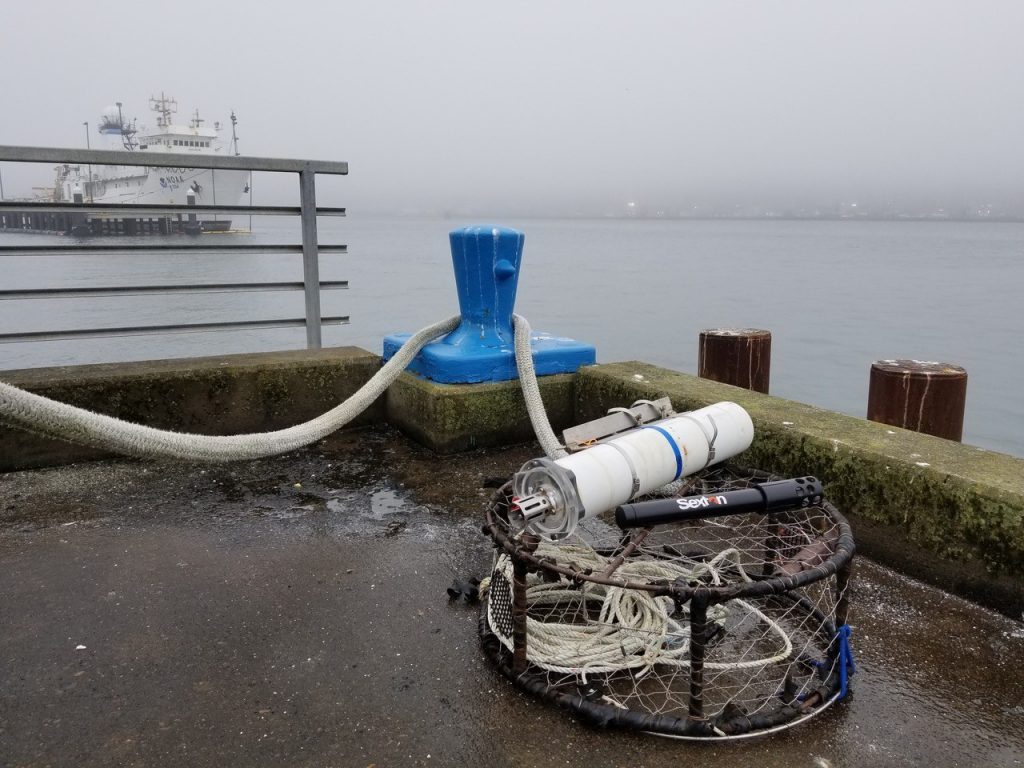NCCOS-supported scientists and engineers have developed a smaller and more user-friendly low cost sensor that fishermen can use to detect and track the onset of low oxygen events off the Oregon coast.

Hypoxia (low oxygen) is a recurring challenge for fishermen in the region. Low oxygen events have resulted in die-offs of marine life on the seafloor. When hypoxic events form, commercial fishermen targeting Dungeness Crabs, one of the region’s most valuable fisheries, can find their pots empty as crabs move away from traditional fishing grounds. This creates more uncertainties for fishermen who are already affected by ocean changes such as ocean acidification, warm blob events, and domoic acid outbreaks.
Using off the shelf technologies, researchers originally developed a dissolved oxygen sensor in 2008 to be deployed on commercial crab pots. With funding from the Coastal Hypoxia Research Program, the original sensor has been redesigned to be sleeker, low cost, and compact. It is also now smart and automatically connects to a deck box once the pot comes on deck. The transmitted data is graphed so fishermen will be able to see what dissolved oxygen concentrations trends have been.
By dropping and retrieving the sensor-equipped pot right away, fishermen can also see what dissolved oxygen concentrations are in real time before they deploy a string of pots. This has the potential to avoid wasted fuel costs and lost revenue from fishing in hypoxic zones. In the coming year, Oregon researchers aim to distribute 40 of these new dissolved oxygen sensors to the commercial crab fleet. This partnership will provide fishermen and scientists alike with crucial data over areas of the coastal ocean that are currently vastly under-sampled.
This project, led by Oregon State University, is working with commercial Dungeness crab fishermen to help detect the onset of hypoxia events to enable adaptive fishing and proactive management of fisheries.
